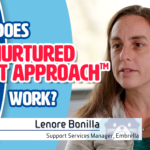So you’ve got a letter from The Division of Child Protection and Permanency (DCP&P) regarding investigation findings and you want to understand what it’s about. If DCP&P has pursued an investigation into possible neglect or abuse, this letter will contain the findings of that investigation. This FAQ will help you to understand exactly what it means.
Investigation Findings FAQ
- I’ve received a “Finding Notification Letter” – why did I get this?
- What happens when DCP&P investigates allegations against me? What are the four types of findings?
- Can I get a copy of the record of the investigation which led to this finding?
- Will others know that I have been investigated by DCP&P?
- There was an UNFOUNDED finding in the investigation – what does that mean?
- Will my name be disclosed in the Child Abuse Record Information Check even though there was an UNFOUNDED finding?
- What happens to the record of the investigation – does it get expunged?
- What would prevent the record from being expunged?
- Can I administratively appeal this UNFOUNDED finding?
- Will DCP&P have any further contact with me?
I’ve received a “Finding Notification Letter” – why did I get this?
DCP&P received a report that a child in your care may have been abused, neglected or harmed, or may have been at risk for abuse, neglect or harm.
What happens when DCP&P investigates allegations against me? What are the four types of investigation findings?
• Unfounded – No evidence indicating a child was abused or neglected. According to DCP&P, this finding means that the evidence indicates that a child was not harmed or placed at risk of harm. Unfounded findings are not disclosed upon a Child Abuse Record Information (CARI) request and are eligible for expunction from agency records if no further allegations are made in the next three years.
embrella’s Family Advocates Say: “An Unfounded finding indicates the investigators believe nothing happened.”
• Not Established – Not enough evidence indicating the child was abused or neglected. This finding indicates that there wasn’t enough evidence of abuse or neglect, but there was enough evidence to indicate that the child was harmed or placed at risk of harm.
embrella’s Family Advocates Say: “A Not Established finding indicates that something happened, but investigators don’t have any evidence to substantiate an allegation against anyone.”
• Established – Evidence that the child was placed in harm but not enough to determine the child was abused or neglected. In this case, the child in question is found to be abused or neglected, but the actions the parent took (or did not take) do not warrant a finding of substantiation once investigators examine the full context of the situation.
embrella’s Family Advocates Say: “An Established finding indicates that investigators determined that something happened and there is evidence, but that there is not enough proof to produce a substantiated finding against anyone.”
• Substantiated – Evidence established a child has been abused or neglected. This is perhaps the most straight-forward finding; it means that a child was found to be abused or neglected and that even in context the allegation of abuse and/or neglect is substantiated.
embrella’s Family Advocates Say: “A Substantiated finding indicates that investigators determined that child was abused or neglected and they know who is responsible and how.”
When investigating allegations of abuse or neglect, it’s important to note that there are specific, legal definitions for “abused child” and other related terms. If you’re confused about how the finding you’ve received applies to the current situation, it may be helpful to refer the NJ State Law to understand the specific definitions that investigators used when exploring the allegations in question.
Can I get a copy of the record of the investigation which led to this finding?
No. Division records are considered confidential and are only provided in limited circumstances, such as for court proceedings.
Will others know that I have been investigated by DCP&P, or know my investigation findings?
No – state and federal law requires that DCP&P records are kept confidential. HOWEVER, there are limited circumstances where information may be shared with outside entities. For more information, see N.J.S.A. 9:6-8.10a. These include people like police officials, doctors, grand juries, future caretakers, etc. Be sure to check the legislation itself for a full list of circumstances that might lead to other individuals gaining knowledge of the investigation and its findings.
The investigation findings show that the allegation was UNFOUNDED – what does that mean?
An UNFOUNDED finding means there is not sufficient evidence indicating that a child is abused or neglected as defined by law, and the evidence indicates that a child was not harmed or placed at any risk of harm.
Will my name be disclosed in the Child Abuse Record Information Check (CARI) even though there was an UNFOUNDED finding?
Your name will NOT be disclosed. A CARI check is a review of our electronic database to determine if an individual was substantiated of child abuse and neglect.
What happens to the record of the investigation – does it get expunged?
After three years these records may be expunged if certain criteria are met. Expunging a record means destroying electronic and paper files from the investigation.
What would prevent the record from being expunged?
– DCP&P receives another report or referral on your family within three years.
– The court orders the record to be kept on file.
– There is a pending DCP&P investigation or a court or criminal proceeding against your family.
– By law, the Commissioner of the Department of Children and Families can request the record be kept.
– DCP&P provides services to your family.*
*Please note that if you have an open home, you fall into this category. The record will not be expunged until your home has been closed for 3 years, as long as none of the conditions above apply.
Can I administratively appeal this UNFOUNDED finding?
No, a finding determination of UNFOUNDED is not subject to administrative appeal.
Will DCP&P have any further contact with me?
DCP&P will continue to provide services to your family according to the case plan. Your case will be closed when your family’s case plan goals have been met and your children are safe.
Accessing this FAQ from embrella is a good first step, but did you know there’s a DCP&P chain of command? For general inquiries, you can always start with your embrella Family Advocate.


